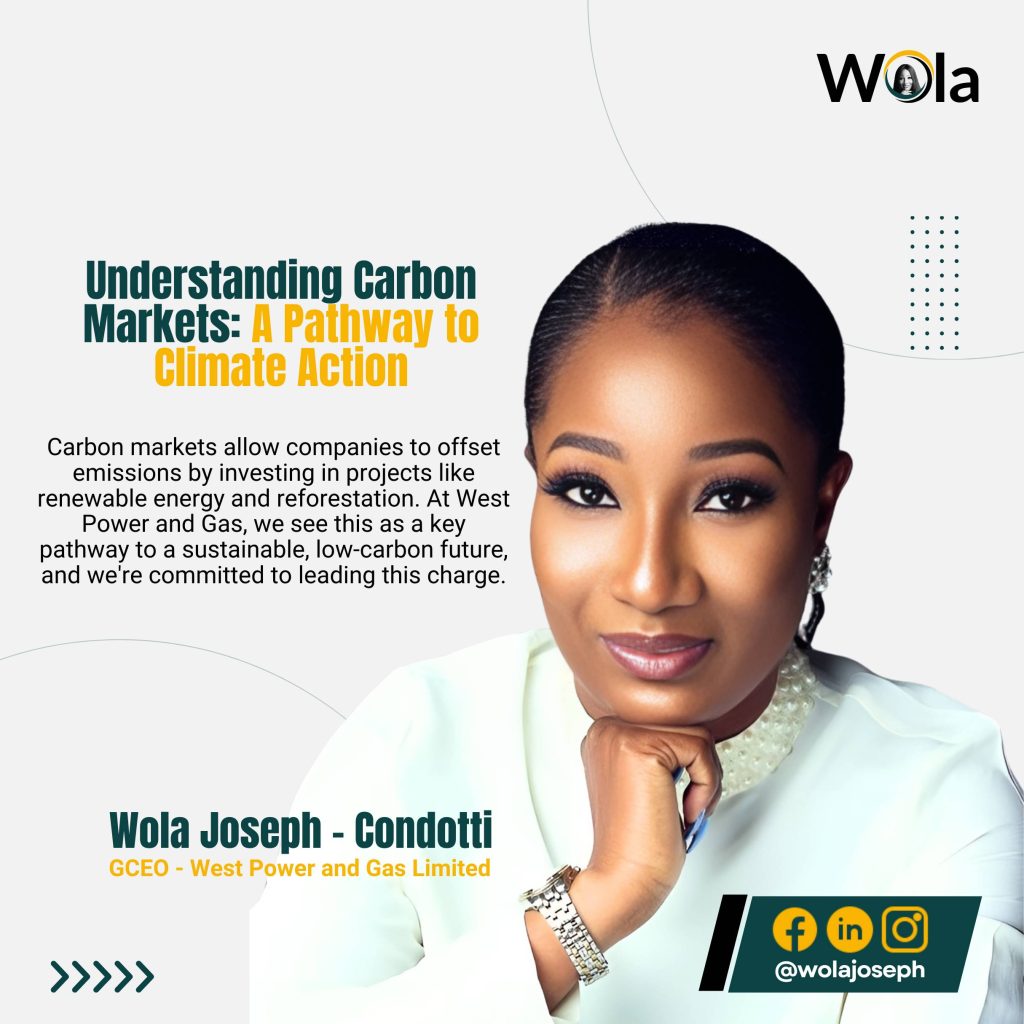In the fight against climate change, carbon markets have emerged as a crucial tool for reducing global greenhouse gas emissions. They provide a flexible and market-driven approach to achieving environmental goals, allowing countries, companies, and individuals to meet their carbon reduction targets through tradeable carbon credits.
𝐖𝐡𝐚𝐭 𝐚𝐫𝐞 𝐂𝐚𝐫𝐛𝐨𝐧 𝐌𝐚𝐫𝐤𝐞𝐭𝐬?
Carbon markets, also known as emissions trading systems (ETS), are platforms where carbon credits can be bought and sold. These credits represent a reduction or removal of one metric ton of carbon dioxide or an equivalent amount of another greenhouse gas. By putting a price on carbon emissions, these markets create an economic incentive for organizations to reduce their carbon footprint.
There are two main types of carbon markets:
1. 𝐂𝐨𝐦𝐩𝐥𝐢𝐚𝐧𝐜𝐞 𝐌𝐚𝐫𝐤𝐞𝐭𝐬: These are established by regulations, which in Africa can be seen through initiatives like the African Carbon Markets Initiative (ACMI). This initiative aims to scale carbon credit production and grow the demand across the continent, creating a robust framework for climate action in Africa.
2. 𝐕𝐨𝐥𝐮𝐧𝐭𝐚𝐫𝐲 𝐌𝐚𝐫𝐤𝐞𝐭𝐬: These markets operate outside of regulatory frameworks and allow businesses, NGOs, and even individuals to purchase carbon credits voluntarily. Companies might participate in voluntary markets to meet corporate social responsibility (CSR) goals, enhance their sustainability credentials, or prepare for potential future regulations.
𝐇𝐨𝐰 𝐂𝐚𝐫𝐛𝐨𝐧 𝐌𝐚𝐫𝐤𝐞𝐭𝐬 𝐖𝐨𝐫𝐤
Carbon markets operate on the principle of “cap and trade” or “baseline and credit.” In a cap-and-trade system, a limit (or cap) is set on the total emissions allowed within a specific region or sector. Companies are allocated a certain number of carbon credits based on their emission levels. If they emit less than their allocated amount, they can sell their excess credits. Conversely, if they exceed their allocation, they must purchase additional credits to comply with regulations.
In baseline-and-credit systems, participants are rewarded with credits for emissions reductions that go beyond a pre-determined baseline. These credits can then be traded in the market.
𝐓𝐡𝐞 𝐑𝐨𝐥𝐞 𝐨𝐟 𝐂𝐚𝐫𝐛𝐨𝐧 𝐌𝐚𝐫𝐤𝐞𝐭𝐬 𝐢𝐧 𝐂𝐥𝐢𝐦𝐚𝐭𝐞 𝐀𝐜𝐭𝐢𝐨𝐧
Carbon markets are designed to drive down emissions in a cost-effective manner. By setting a price on carbon, these markets encourage innovation in low-carbon technologies and practices. Companies that can reduce their emissions more cheaply can sell their excess credits to those facing higher reduction costs, creating a financial incentive for continuous improvement.
Moreover, carbon markets can mobilize significant investment in sustainable development projects. This includes reforestation, renewable energy development, and energy efficiency initiatives—projects that not only reduce emissions but also contribute to broader environmental and social goals.
𝐂𝐡𝐚𝐥𝐥𝐞𝐧𝐠𝐞𝐬 𝐚𝐧𝐝 𝐂𝐫𝐢𝐭𝐢𝐜𝐢𝐬𝐦𝐬
While carbon markets have the potential to be powerful tools for climate action, they are not without challenges. Critics argue that carbon markets can sometimes lead to “carbon leakage,” where emissions are simply outsourced to regions with weaker regulations. Additionally, there is concern over the integrity of some carbon credits, particularly in voluntary markets, where the quality and transparency of offset projects can vary.
Despite these challenges, ongoing reforms and improvements in carbon market mechanisms aim to address these issues. Enhancing the transparency, accountability, and robustness of carbon markets is crucial to ensuring their effectiveness in achieving global climate goals.
𝐖𝐞𝐬𝐭 𝐏𝐨𝐰𝐞𝐫 𝐚𝐧𝐝 𝐆𝐚𝐬: 𝐋𝐞𝐚𝐝𝐢𝐧𝐠 𝐭𝐡𝐞 𝐂𝐡𝐚𝐫𝐠𝐞 𝐢𝐧 𝐂𝐚𝐫𝐛𝐨𝐧 𝐌𝐚𝐫𝐤𝐞𝐭𝐬
At West Power and Gas, we recognize the vital role that carbon markets play in driving the energy transition. We are committed to participating in both compliance and voluntary carbon markets to meet our sustainability targets and support the global effort to combat climate change.
Our approach includes partnering with companies involved in high-quality carbon offset projects, such as renewable energy, circular economy, and reforestation initiatives, that align with our vision of a sustainable future. By engaging in these markets, we not only offset our emissions but also contribute to the broader development of a low-carbon economy.
𝐂𝐨𝐧𝐜𝐥𝐮𝐬𝐢𝐨𝐧
Carbon markets represent a dynamic and flexible approach to reducing greenhouse gas emissions. By putting a price on carbon, they create powerful incentives for companies to innovate and invest in sustainable practices. As we move forward, the continued development and expansion of carbon markets will be essential in the global effort to mitigate climate change and build a more sustainable future.
At West Power and Gas, we are proud to be part of this movement, leveraging carbon markets to meet our environmental goals and contribute to a greener, more sustainable world.

